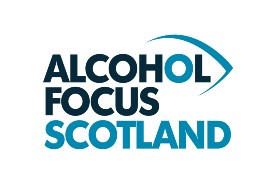Heavy drinking
These resources give information for dependent drinkers, or people whose alcohol use puts them at high risk of harm.
- Dependent drinking is when someone feels they can’t easily stop or cut down their drinking.
- High risk drinking means regularly drinking more than 15 units per day (that’s half a bottle of spirits, 1.5 bottles of wine, 3 cans of super lager, or 6 cans/bottles of beer or cider).
If this applies to you or someone you know, there’s still support available online and via telephone during the COVID-19 crisis.
Avoiding Alcohol Withdrawal
Continuing to drink at the levels outlined above can put you at high risk of harm, if you’re considering cutting down during the COVID-19 crisis there is still help available to support you.
If you are planning to cut back make contact with a support organisation beforehand as their help before, during and after the process can be very useful. There is also guidance available from SHAAP for high risk or dependent drinkers wanting to cut down:
Services may be operating differently at the moment. Your local community alcohol or addiction service will be able to give you up to date information on what is available. You can also find more information on local services at the following links:
Drinking heavily might mean you are at risk from withdrawal when you start to cut down. In severe cases alcohol withdrawal can cause:
- Seizures (fits) even if you have not had one before;
- Hallucinations (seeing, hearing or feeling things that aren’t there);
- Confusion (about where you are, what time it is, who you are with);
- Poor coordination and unsteadiness on your feet.
If you experience any of these symptoms please call 111 for urgent medical attention.
If you have experienced these symptoms when trying to cut down drinking in the past, you should seek medical advice before trying again.

Staying Healthy
Keep an eye on your health during this time - drinking heavily brings many health risks. If you experience sudden weight loss, yellowing of the skin or eyes, swelling around your tummy, passing or vomiting blood or difficulty swallowing, or if you are in severe pain, contact your GP or go to A&E. NHS services are still available and safe to access.
Physical distancing and isolating at home can be frustrating or worrying – try and get some fresh air by setting a time to go for a walk. This can help you keep calm and feel less isolated.
During this time you may not have as much contact with your usual support networks or be able to stay or visit friends and family. Try to keep in touch by phone, or online. If you can, tell a trusted friend about your progress with alcohol, but talk about other things too.
If you feel unwell don’t be afraid to call for help – dial 999 in an emergency or visit your GP or alcohol or addictions worker if you need to - there’s still help available even in lockdown.
Visiting the shops
Physical distancing means making less trips outside. Try to limit trips to the shops as much as you can, you can do this by planning how much you need to buy in one trip and where you need to go. If you can, use food delivery services so you can cut down on shopping trips.
Alcohol and Drugs
Mixing alcohol and other drugs? Alcohol works differently with different drugs so it’s best to let the effects of one wear off before taking the other to avoid dangerous or unintended effects.
Crew 2000 have good resources on different drugs and how they mix.
If you are taking prescription medication make sure you check and follow the instructions about alcohol use. If you are unsure, ask your pharmacist or GP for advice.
Services and Support
Looking for help with your drinking? There’s a lot of support available, even during the crisis:
- Map of current services
- We are with you is a UK-wide agency that helps individuals, families and communities to manage the effects of alcohol and other drugs. They provide free, confidential information and advice and a webchat service. Speak to trained alcohol and drug workers online via the We Are With You website or by phone: Tel: 0300 123 1110 (Weekdays, 10am-4pm, 6pm-9pm) (Weekends, 11am-4pm)
- Alcoholics Anonymous (AA) provide free self-help groups across Scotland and online. Its 12-step programme involves getting sober with the help of regular support groups. National helpline number: 0800 917 7650. Find online meetings
Alcohol can make people feel more anxious or depressed – if you find yourself feeling particularly bad, help is available:
Recovery communities are active, not just helping people emerge from addiction but helping wider communities stay safe. Whether you’re looking for support or to offer support, there’s lots of recovery activity right now https://scottishrecoveryconsortium.org/
